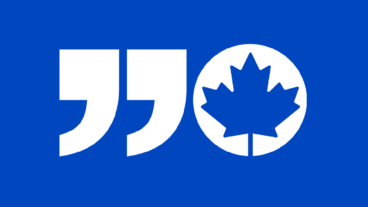With tariff threats constantly shifting (sometimes delayed, sometimes modified, always uncertain) it’s tough to predict exactly which measures will stick, and for how long. Even the uncertainty itself is doing damage, making smart financial choices for individuals and businesses more important than ever.
How Tariffs Hit Home
Tariffs are essentially taxes companies pay on imported goods. US businesses importing Canadian products subject to US tariffs would face higher costs, often passing these expenses onto consumers. Similarly, Canada’s retaliatory tariffs would affect prices Canadians pay for items like meat, wine, and household goods.
The economic impacts extend beyond higher prices at checkout. Canada’s economy is deeply integrated with US supply chains, meaning tariffs could amplify costs at every stage of production. Auto parts crossing borders multiple times, for example, could face repeated tariff charges, dramatically raising vehicle prices and repair costs.
An ongoing tariff war could severely impact Canada’s economy, potentially contributing to a recession and job loss. Additionally, tariffs could further weaken the Canadian dollar, increasing costs for imported goods and making travel more expensive.
Buying Canadian: Elbows up?
Faced with rising costs, Canadians often consider buying local as an alternative. The “elbows up” movement, where Canadians deliberately seek out domestic products even if it means paying a small premium or going out of their way, is gaining momentum. Choosing Canadian-made products can help avoid tariff-induced price hikes and support domestic businesses. Many consumers have already adapted by seeking local produce, beverages, and even entertainment.
Some companies have already started making it easier for consumers to identify Canadian products clearly. Encouraging more businesses to adopt similar measures can help Canadians “vote with their wallets” and simplify buying local.
However, buying Canadian isn’t always simple. Not every product has a domestic equivalent, and local goods might also rise in price if demand outpaces supply. Thus, while buying local helps ease some pressure, it’s not a complete solution. Regardless, many Canadians are now willing to pay a premium or go out of their way to buy local out of spite. Whether or not any new tariffs are here to stay, there might now be some permanence in this retail patriotism.
Navigating Financial Uncertainty
Economic uncertainty, whether from tariffs or other disruptions, highlights the importance of sound financial planning. Canadians can proactively mitigate financial stress with these steps:
1. Revisit Your Budget:
With prices potentially rising, reassess your monthly spending to ensure essential expenses like groceries, utilities, and transportation remain manageable. Prioritize needs over wants and adjust spending habits accordingly.
2. Bolster Emergency Savings:
Uncertain economic times underline the necessity of having an emergency fund. Aim to build savings covering at least three months of expenses to cushion against unexpected financial setbacks, such as job instability or sudden price spikes. If your higher-than-average income is tied to more specialized skills and finding a replacement job at the same level of income would therefore be harder, three months’ of expenses set aside is not enough. It’s not uncommon to target a year’s worth of an emergency fund for more specialized jobs.
3. Manage Debt Carefully:
While the short-term prognosis is that rates may come down further to combat the drag on the economy, households have taken on lots of debt over time. Prioritize paying down high-interest debt like credit cards to protect your finances from becoming overly burdened.
4. Stay Calm in Investing:
Tariffs and trade tensions can shake investment markets, triggering volatility. If you have a properly constructed portfolio that is matched to your time horizon, risk profile, and goals, maintain that long-term investment plan. Resist panic-driven decisions. The trade-off for higher potential long-term returns has always been higher short-term volatility with modern portfolios. Consult a professional if uncertain. Staying consistent and informed typically yields better results than impulsive moves.
The Workplace Advantage
As I explained in my recent Globe and Mail column, prolonged tariff disputes don’t just raise prices, they directly harm productivity and job growth by distracting workers from tasks and towards their financial worries. As a result, their job performance inevitably suffers.
Research in The Quarterly Journal of Economics demonstrated that relieving short-term financial stress significantly boosts workplace productivity and reduces mistakes. Specifically, alleviating immediate financial pressures increased output by approximately 7%, as workers redirected their mental energy from worrying about bills to effectively managing daily tasks.
Employers can play a pivotal role in supporting employees by providing financial education programs at work. By investing in workplace financial wellness talks, companies demonstrate care for their teams’ well-being while building resilience in uncertain economic climates. After all, financial confidence isn’t just beneficial for individuals — it strengthens entire organizations.
In uncertain economic times, knowledge, proactive planning, and community support are your strongest allies. Tariffs or not, Canadians who take control of their financial habits are best positioned to weather any financial storm.
Turn Financial Complexity into Actionable Strategies
Tariffs, market volatility, and economic uncertainty demand expertise that transforms complexity into clarity. Preet Banerjee, neuroscientist-turned-financial expert and regular on CBC’s The National, delivers actionable financial strategies your audience can implement immediately.
From weathering economic storms to implementing workplace financial wellness, Preet’s presentations build confidence and inspire action.
Contact us to learn more about Preet and how to book him for your next event and give your audience the financial clarity they deserve.




